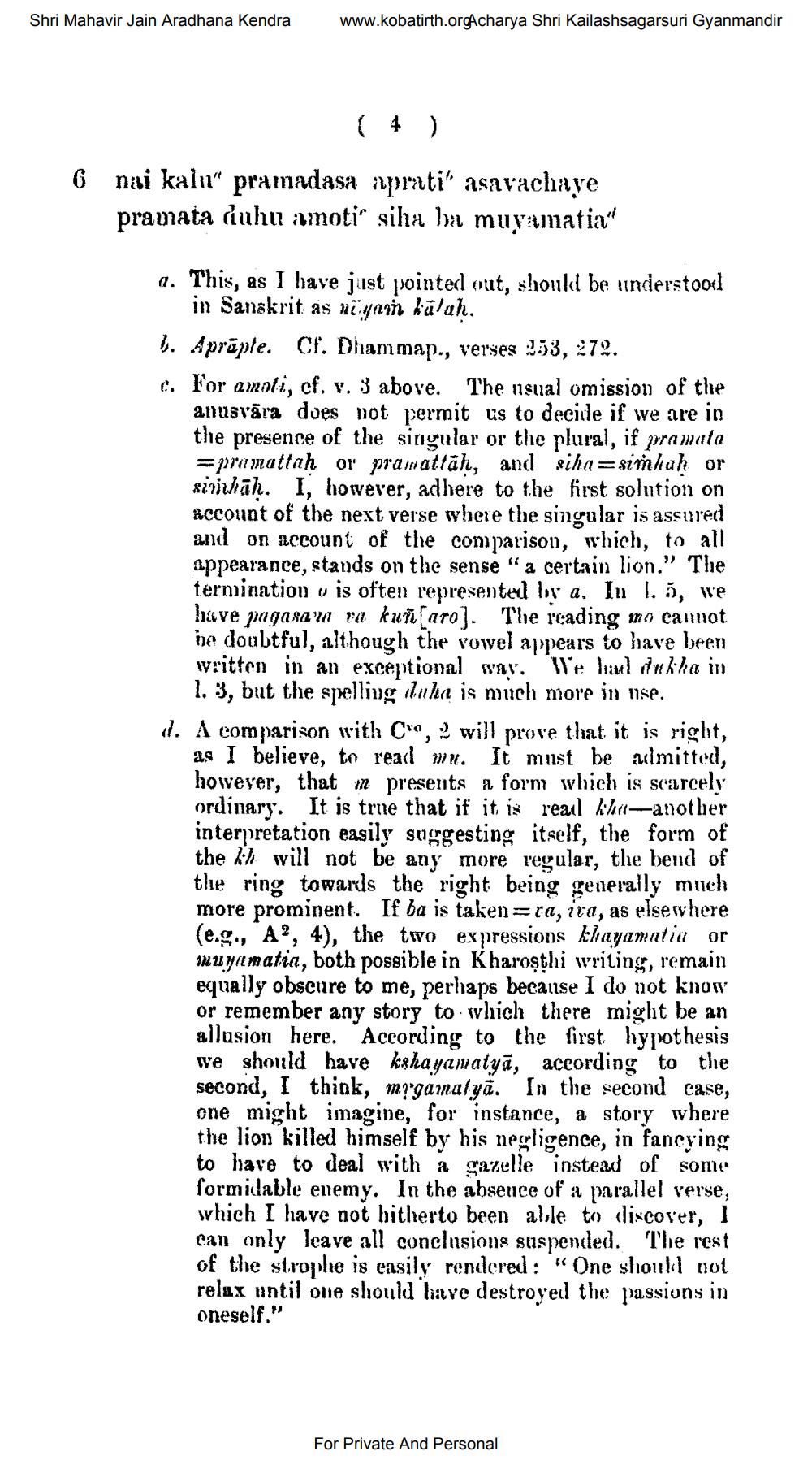________________
Shri Mahavir Jain Aradhana Kendra
www.kobatirth.orgAcharya Shri Kailashsagarsuri Gyanmandir
6 nai kalu“ pramadasa prati" asavachaye
pramata duhu amoti siha ba muyamatia"
a. This, as I have just pointed out, should be understood
in Sanskrit as nüyaan kūlah. 6. Aprāple. Cf. Dhammap., verses 2253, 272. 6. For amoli, cf. v. 3 above. The nsual omission of the
anusvāra does not permit us to decide if we are in the presence of the singular or the plural, if pramata =pramattah or pramatlāh, and siha=siỉnhuḥ or siriuhāh. I, however, adhere to the first solution on account of the next verse where the singular is assured and on account of the comparison, which, to all appearance, stands on the sense "a certain lion." The termination vis often represented liv a. In 1.5, we have pagasan ra kun[aro). The reading mo cannot ve doubtful, although the vowel appears to have been written in an exceptional way. We hai dukha in
1. 3, but the spelling ilaha is much more in use. 17. A comparison with Cro, will prove that it is right,
as I believe, to read u. It must be admitted, however, that in presents a form which is scarcely ordinary. It is trne that if it is real khu-another interpretation easily suggesting itself, the form of the kh will not be any more regular, the bend of the ring towards the right being generally much more prominent. If ba is taken=ra, ira, as elsewhere (e.g., "A?, 4), the two expressions khayamatia or muynematia, both possible in Kharoşthi writing, remain equally obscure to me, perhaps because I do not know or remember any story to which there might be an allusion here. According to the first hypothesis we should have kshayamatyā, according to the second, I think, migamalya. In the second case, one might imagine, for instance, a story where the lion killed himself by his negligence, in fancying to have to deal with a gazelle instead of some formidable enemy. In the absence of a parallel verse, which I have not hitherto been alle to discover, 1 can only leave all conclusions suspended. The rest of the strophe is easily rendered : « One should not relax until one should have destroyed the passions in oneself."
For Private And Personal




